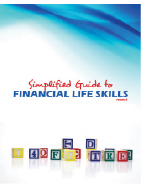Myth: You have to pay 20% down to buy a house.
Fact: There are many programs and lenders that allow you to put down as little as 5%. There are also programs out there where you don’t have to put any money down. Each individual’s situation will be different. If you do not pay at least 20% though you will have to pay private mortgage insurance (PMI).
Myth: I can get a credit card and buy a bunch of nice things with it then file for bankruptcy.
Fact: It may be easy to think that someone could take advantage of bankruptcy and unfortunately there are people out there who try. But your finances and purchases are thoroughly examined when you file for bankruptcy. They will notice those major purchases and they may seize the items to help pay off your debts. Not only is it a bad idea, but it is also illegal. You could be charged with fraud and open the door to a whole new world of problems.
To buy items you know you can’t afford with the intention of filing for bankruptcy is troubling, because no material item should be worth the bad mark that bankruptcy leaves. Bankruptcy should be reserved for those who are truly in need of its services.
Myth: My credit is good so I don’t have to order a credit report.
Fact: Even though you may have great credit doesn’t mean that someone has made a mistake or even worse, that someone has stolen your credit. It is good to take advantage of receiving a free copy of your credit report at least once a year. Go to www.annualcreditreport.com to request a copy from one of three agencies. Then review your credit report to make sure that everything on it is accurate. This is the best way to ensure that your great credit score will stay intact.
Here are a few fun ones.
Myth: You can float a check longer if you write it in red ink.
Fact: You can write your check in any color of ink and it will be processed the same. You don’t want to try and float checks anyway, as many checks are now electronically processed the same day.
Myth: If you don’t sign the back of your credit card you won’t be a victim of identity fraud.
Fact: Actually, the very opposite is true. If someone steals your credit card and it is unsigned all they have to do is sign the name in their handwriting and then they can freely use it always matching the signature. It is important to sign the credit card in your handwriting. You can also sign it with “See ID” which will prompt a cashier into asking to see a photo I.D. whenever you make a purchase.
Myth: The classic myth that money brings happiness.
Fact: Sure, more money can help you pay the bills and get you caught up but you still need proper money management skills. Many times people who come across more money think it is ok to spend more money. More money can sometimes mean more problems.
Many stories revolve around money and finances and with the power of the Internet, myths and rumors can be exchanged like a common cold. So if you come across something that you are skeptical about, it is probably a good idea to contact a professional to find out its legitimacy.







